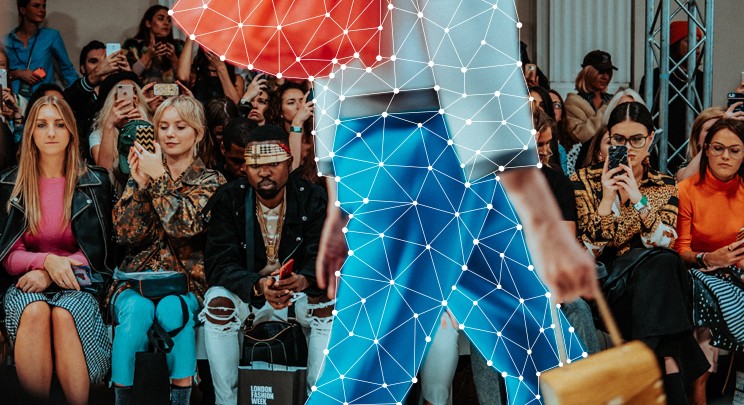
Fashioning a Greener Future: How AI Can Revolutionize Sustainable Fashion
In an era marked by environmental consciousness and ethical consumption, the fashion industry is at a crossroads.
The demand for sustainable fashion is on the rise, driven by consumers seeking eco-friendly alternatives and transparency in the supply chain. Enter artificial intelligence (AI), a technology that is rapidly reshaping the fashion landscape. In this article, we will explore how AI is poised to transform sustainable fashion, offering innovative solutions to minimize waste, reduce carbon footprints, and meet the growing demand for ethical clothing.
1. Powering Supply Chain Transparency
AI's ability to track and monitor the supply chain is a game-changer for sustainable fashion. By leveraging data analytics and blockchain technology, AI can provide real-time visibility into the production process. This transparency enables consumers to make informed choices about the sustainability of their clothing, fostering trust in brands committed to ethical practices.
2. Optimizing Design and Material Selection

AI algorithms are adept at analyzing vast datasets to identify sustainable materials and design options. Fashion designers and brands can use AI to explore eco-friendly fabrics, dyeing techniques, and production methods that reduce environmental impact. This not only enhances the sustainability of clothing but also promotes innovation in fashion design.
3. Reducing Waste with Predictive Analytics
One of the most pressing issues in the fashion industry is waste. AI-powered predictive analytics can help fashion companies optimize inventory management, reducing overproduction and excess inventory. By predicting demand more accurately, brands can minimize waste and avoid the disposal of unsold clothing.
4. Personalizing Shopping and Circular Fashion
AI-driven personalized shopping experiences can encourage consumers to make more sustainable choices. By analyzing customer preferences and behavior, AI can recommend eco-friendly clothing options and even facilitate clothing swaps and rentals. This promotes the concept of circular fashion, where clothing is reused and recycled, reducing the need for new production.
6. Sourcing Sustainable Material
AI can assist in sourcing sustainable materials by analyzing various factors, such as carbon footprint, water usage, and ethical labor practices. This enables fashion brands to make informed decisions about material suppliers, ensuring that their products meet the highest sustainability standards.
7. Improving Energy Efficiency in Manufacturing
AI can optimize energy consumption in clothing manufacturing processes. By analyzing data on machinery usage and production schedules, AI algorithms can identify opportunities to reduce energy waste and lower carbon emissions. This not only benefits the environment but also reduces operational costs for fashion companies.
8. Streamlining Recycling and Upcycling
The fashion industry is increasingly focused on recycling and upcycling existing clothing. AI-powered sorting systems can identify recyclable materials in used clothing, making it easier to separate and process textiles for reuse. This technology supports the shift towards a more sustainable and circular fashion economy.
9. Enhancing Sustainable Fashion Marketing Campaigns

AI-driven marketing strategies can highlight a brand's commitment to sustainability. By analyzing consumer preferences and behaviors, AI can help fashion companies tailor their marketing campaigns to resonate with eco-conscious consumers. This targeted approach can increase the visibility and appeal of sustainable fashion brands.
9. Reducing Returns and Emissions
Online shopping often results in high return rates, contributing to carbon emissions from transportation. AI can reduce returns by providing accurate size recommendations based on body measurements and style preferences. This not only enhances the online shopping experience but also lowers the environmental impact of shipping and returns.
10. Ensuring Ethical Labor Practices
AI can be used to monitor and ensure ethical labor practices throughout the supply chain. By analyzing worker conditions and wage data, AI can help fashion brands identify and rectify any issues related to labor exploitation, promoting fair and ethical treatment of workers.
The fashion industry is undergoing a transformative shift towards sustainability, driven by consumer demand and global environmental concerns. AI is emerging as a pivotal technology in this endeavor, offering innovative solutions to reduce waste, increase transparency, and enhance the overall sustainability of the fashion supply chain.
As the fashion industry continues to adopt AI-driven practices, it has the potential to become a beacon of sustainability, setting an example for other industries to follow. By harnessing the power of AI, fashion brands can not only meet the rising demand for ethical clothing but also contribute to a greener and more sustainable future, where fashion and environmental responsibility go hand in hand.
Trending
-
1 How IoT is Revolutionizing Sustainability: A Brighter Future Beckons
Susanna Koelblin -
2 How The Water Treatment And Desalination Will Change The Environment For The Better
Daniel Hall -
3 How Intermediate Bulk Containers Enhance Environmental Sustainability
Daniel Hall -
4 Hybrid Cars and Their Key Benefits
Susanna Koelblin -
5 UK Faces Wettest July in Recent Memory
Daniel Hall





Comments